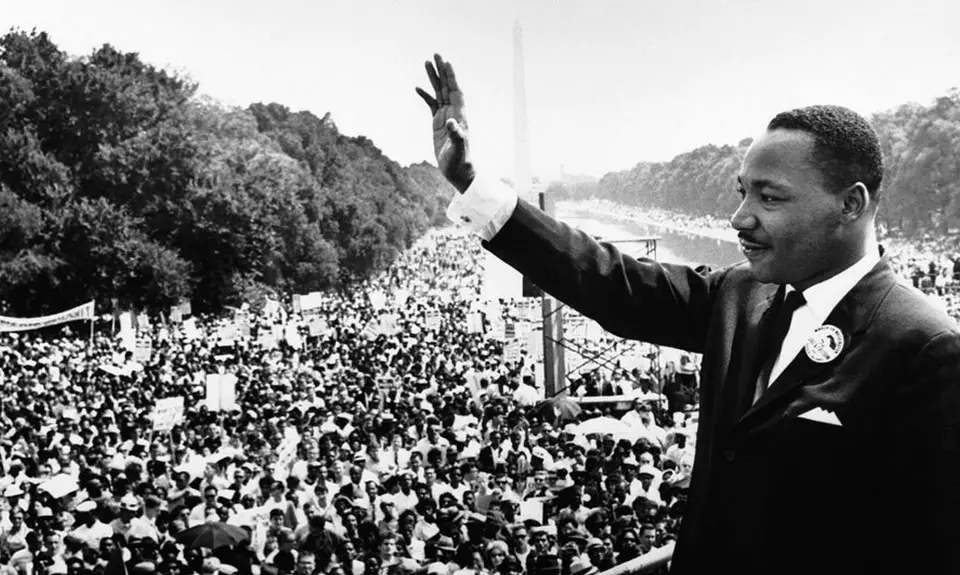This op-ed was distributed by Trice Edney Newswire.
For many of us, the Martin Luther King holiday every year brings memories of Dr. King’s great speeches and the incredible power of his words. Dr. King was a master orator who gave many inspiring speeches throughout his career. Lots of Black kids – myself included—grew up mesmerized by the majesty of the “I Have a Dream” speech, wishing we could one day speak that well.
As a youngster, especially one who struggled with a speech impediment, I thought great speeches were magic.
I still do. Except now I see that magic isn’t made in a vacuum.
Maybe you’ve heard a great speech given in an empty room; I know I have. No matter how wonderful the words, the impact will be small. In contrast, I look at the old photos of Dr. King’s speeches and there is a sea of upturned faces, many Black, some white: older people, young folks, men and women.
I think about these moments and I am struck not just by the power of Dr. King, but by the enormous commitment of the people behind the scenes: activists, organizers, and volunteers.
Those working behind the scenes enabled the people of Montgomery, Alabama, to hear Dr. King promise that the arc of the moral universe does indeed bend toward justice. They enabled hundreds of thousands in Washington, and even more around the country, to hear his immortal “I Have a Dream” speech. And in Memphis, they enabled thousands of striking sanitation workers and their allies hear Dr. King the day before he was murdered, when he spoke of having been “to the mountaintop” and gave hope for a better future.
I feel deep gratitude for the hundreds, even thousands of people who played “supporting” roles throughout Dr. King’s life, the people who passed out flyers, who offered rides, who brought friends and neighbors to listen when he spoke. And of course, there is gratitude beyond words for all those who marched, who faced police brutality and fought segregation. Because of them, Dr. King was able to change the world.
There’s a lesson in that for all of us. If you say to yourself, “I could never give the kind of speech Dr. King could give, so there isn’t much I can do to change hearts and minds,” then you are half right – and half wrong.
It’s true that Dr. King’s talents were rare. But he didn’t move mountains alone; nobody can. The lesson we should learn when we commemorate the life of Dr. King is how vital each of us can be, together and separately, in changing the world.
“We are caught in an inescapable network of mutuality,” Dr. King wrote, “tied in a single garment of destiny.” To me, his characteristically beautiful words mean that history is not made by a parade of individual heroes, stretching single-file through the centuries; it is made collectively, by the many.
In everyday terms, it means that the person who sets up the chairs or plugs in the microphones for an event is as important to its success as the speaker onstage. Each of us has a part to play and a gift to give.
And each of us has a responsibility to act. Too often there is a temptation to wait for the next hero to come along to “save” us, which can lead to doing nothing. That’s a downside of believing, falsely, that heroes can act alone.
So yes, we honor Dr. King for his incredible life. And we should also honor him by committing to serve our communities and work for change in any way we are able. That’s how we make magic.
###
Svante Myrick is President of People For the American Way. Previously, he served as executive director of People For and led campaigns focused on transforming public safety, racial equity, voting rights, and empowering young elected officials. Myrick garnered national attention as the youngest-ever mayor in New York State history.
